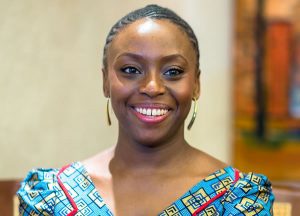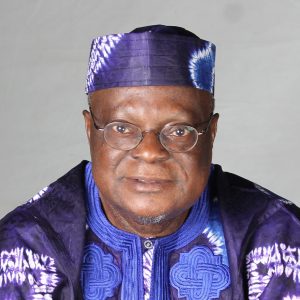AKEEM LASISI
he hour is almost here when the winner for the Nobel Prize for Literature (2021) will be announced. How beautiful will it be if another Nigerian writer is offered the super crest! If this happens, it will come after the continent-wide pioneering feat recorded by Professor Wole Soyinka in 1986, a year that now seems like an eternity back.
Should a Nigerian emerge, it ought not to be too surprising, based on how rich its literary firmament is. We somehow missed it with the death of legendary novelist, Chinua Achebe – he leeft in 2013. By compelling standards, he was qualified to wear the crown. Many believe that if the only book he ever wrote was Things Fall Apart, it was worth securing the Nobel award. The argumentation has been done, the lamentation has been deep – but the reality is that Achebe is gone without the recognition, although the honour he exudes even in death is worth more than many physical trophies.

In his absence, looking at the list of our leading writers cannot end up a barren exercise. Three names quickly come to one’s mind, among those the Swedish Academy might have considered – provided they were nominated. These are Niyi Osundare, Chimamanda Ngozi-Adichie and Femi Osofisan. Based on the enormously rich productivity the trio have bequeathed to humanity, and comparing theirs to the statuses of some of the past Nobel winners, it can be said that they indeed deserve to be anointed.
Interestingly, each of them is synonymous with a genre, although they have done relatively well in others too. For Osundare, posterity seems to owe his poetry something in the range of the Nobel. A world-class verse weaver in every sense, he has bequeathed to humanity a vault of poetry (18 collections) that is roundly fertile: thematically phenomenal and stylistically iconic. From one award-winning work – which often travels various cardinal points of existence in a vehicle of pulsating language – to the other, he marries Yoruba oral forms with the western, raising the flag of his heritage in the clapping sky. When you want to experience poetry that, with the foreign and native tongue, does the kind of wonder that Achebe does to English and Igbo in Things Fall Apart, and what Soyinka does with English and Yoruba in Death and the King’s Horseman, just visit Osundare, say in The Eye of the Earth, Waiting Laughters or Moonsongs.
In the case of Chimamanda, no time from yesterday can be too early for her to reap the Nobel. Child of the world, daughter of her country, she is a fantastic example of those who establish the prose as a universal force. Hers is the tender pen that has no problem courageously and wittingly engaging the story of old, symbol of the muse that needs no visa or interpreter to movingly tell the Diaspora and home stories. These are part of the essence of Chimamanda’s six and mor works that include Half of a Yellow Sun, Purple Hibiscus and Americanah. For one, she is one writer that does not let the world too much feel Achebe’s departure. This is not saying she can replace him, but she has shown good capability to continue the story.

Now onto the stage of foremost dramatist, Femi Osofisan, whose output would also stand a good chance on the table of a committee like the Nobel’s. Put differently, one of Osofisan’s greatest assets is proficiency, having written and produced some 60 plays, all eventfully meandering through political, social and cultural issues. Although Osofisan can be deeply historical in some of his plays, he also travels cunningly far in some of them. He is a writer in whose works the Yoruba traditional poetry and songs come alive, just as they often exude dances, all of which make them total writings and performances. Besides, Osofisan’ career and plays, alongside those of some others’, should be acknowledged when considering intimate and remote factors that contributed to the development of Nollywood as some of plays have been engaged by filmmakers, with results that are often good. An example here is Osofisan’s Maami, produced by Tunde Kelani.
Of course, all the three writers are relevant beyond their primary creative constituencies. Osundare has, for instance, to his credit plays, children/academic books as well as essays and newspaper articles. Chimamanda’s has been a voice bursting with vigour and splendour at fora across the world, and in other writings like essays. Osofisan could, indeed, have excelled if he had specialised in poetry or prose. His poetry books that include Minted Coins and Dreamseeker in Divining Chain, for instance, poetic marks of a genius who has however been imprisoned by the Thespian god. Based on these legacy tips, therefore, the Nobel laureate panel will not do badly if they crown any of the three giants. For one, Nigeria’s current embattled nationhood needs the kind of hope and succour the high award will inspire.



